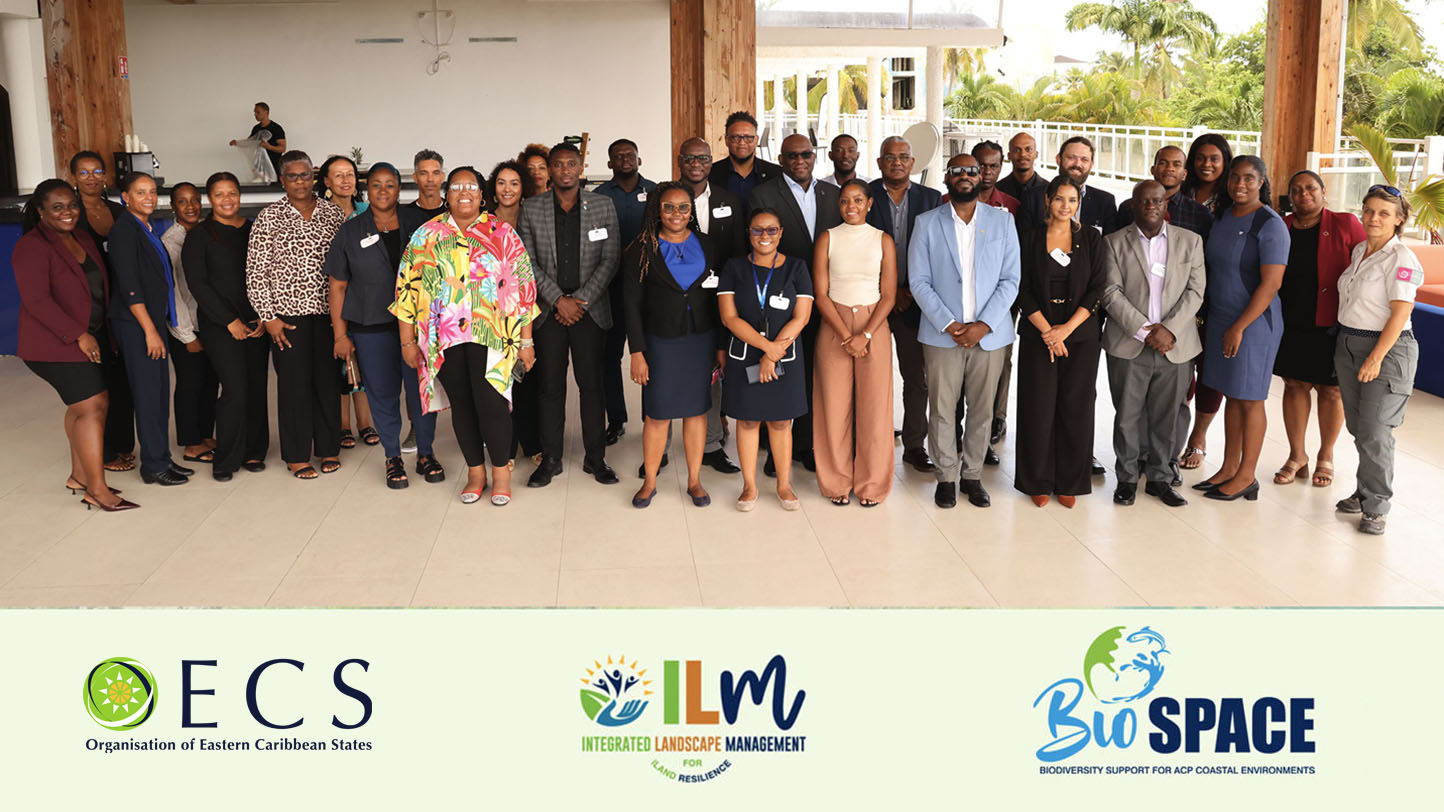OECS Hosts Joint Biodiversity and Ocean Governance Meeting in Guadeloupe
OECS Press Release
The ocean, often described as the planet’s life-support system, is home to an extraordinary wealth of biodiversity. The French Research Institute for Exploitation of the Sea (Ifremer) estimates that between 60 and 80 percent of the world’s biodiversity is found beneath its surface. Coral reefs form a vital part of this richness, with the Caribbean region alone being home to 10 percent of the world’s reefs. Equally significant, the United Nations Convention on Biological Diversity has noted that more than 3 billion people around the globe depend directly or indirectly on marine and coastal biodiversity for their livelihoods, and millions of them reside in the large ocean states of the Caribbean.
For these reasons, the Organisation of Eastern Caribbean States (OECS) continues to advance the conservation of marine biodiversity and protection of the ocean. Climate change, invasive species, and pollution, particularly plastic waste, remain among the greatest threats to marine biodiversity.
From September 22–24, 2025, the OECS Commission convened a joint session of its Biodiversity, Ecosystems and Ecosystem Services Unit (BEES) and the Sustainable Ocean Management Unit (SOM) in Guadeloupe, bringing together national focal points, experts, and regional partners.
A waste management exhibition was also hosted over the three days and was visited by students from several schools across Guadeloupe. The exhibition featured interactive displays, a virtual reality ocean dive, and video documentaries, offering students an engaging and educational experience on environmental sustainability.
The programme began with a tour of a waste separation and recycling facility in Basse-Terre, which processes between 20–25 tonnes of tyres and 500–600 tonnes of plastics monthly for reuse, alongside other innovative recycling practices. Participants also visited the Maison de la Forêt trail, home to 26 reptile species, 3,000 insect species, and 289 bird species, underscoring the ecological diversity and conservation priorities of the host island.
6th Meeting of the OECS Biodiversity and Ecosystems Management Committee (BEMC)
On September 23, the 6th BEMC Meeting reviewed regional progress and challenges in biodiversity governance. Updates highlighted the steady advancement of the EU-funded BioSPACE and Integrated Landscape Management (ILM)projects, though procurement delays remain a challenge. The OECS 30x30 Programme continues to gain momentum, with work underway to establish a Regional Conservation Hub and with a US$10 million Global Biodiversity Framework Fund application submitted to scale up commitments.
Member States also shared a range of flagship initiatives. These included Montserrat’s Mountain Chicken Recovery Programme, Saint Lucia’s Nature-based Solutions Pathways, Dominica’s efforts in restoring dry scrub forests, and the Virgin Islands’ progress in expanding marine protected areas.
Scientific presentations emphasised the urgency of systemic reforms to reverse biodiversity loss in the face of climate change, coral bleaching, and mangrove degradation. At the same time, several international partners, including Conservation International, the Global Environment Facility, The Nature Conservancy, and the Caribbean Biodiversity Fund, outlined new financing opportunities, ranging from blue carbon initiatives to innovative instruments such as nature bonds and digital sequence information-based funds.
Governance arrangements were also strengthened, with Members adopting revised Terms of Reference and agreeing to hold monthly virtual meetings to improve coordination and accountability. The meeting also called for timely Member State submissions to the Kunming-Montreal Global Biodiversity Framework, acceleration of outstanding National Biodiversity Strategies and Action Plans (NBSAPs), and stronger communications to make biodiversity issues relatable to citizens across the region.
OECS Ocean Governance Team (OGT23)
On September 24, 2025, the 23rd Meeting of the OECS Ocean Governance Team (OGT23) convened under the Chairmanship of Antigua and Barbuda, coinciding with the global observance of World Maritime Day 2025, under the theme, “Our Ocean, Our Obligation, Our Opportunity.”
The session reinforced collaboration between the OECS BEES and SOM Units and advanced critical regional ocean priorities. Discussions focused on updates on OECS 2025/26 priority areas for action, including the status of the Maritime Single Window Initiative, and regional preparations for the implementation of the Biodiversity Beyond National Jurisdiction Agreement (BBNJ). Delegates also reviewed updates on the PROCARIBE+ Ocean Coordinating Mechanism, examined opportunities in the Blue Economy, including the Unleashing the Blue Economy of the Caribbean Project and the Centre of Excellence for Oceanography and Blue Economy, and discussed the outcomes of the Third United Nations Ocean Conference (UNOC3).
The afternoon segment was dedicated to capacity-building and technical training. Kenroy Simmons of the Commonwealth Secretariat delivered a session on Maritime Boundary Delimitation, outlining the relevant rules and procedures under UNCLOS and guiding participants through mock negotiations based on a practical scenario. This was followed by a training session led by The Nature Conservancy, which introduced participants to the Caribbean 30x30 Conservation Action Decision-Support Tool, a resource designed to support data-driven marine spatial planning and conservation decision-making across the region.
These back-to-back meetings reflect the OECS Commission’s ongoing commitment to integrated biodiversity and ocean governance, ensuring the Eastern Caribbean region is well positioned to meet its regional and international commitments while safeguarding the ecosystems upon which its people and economies depend.
Danny Moonie
OECS Communications Unit

















